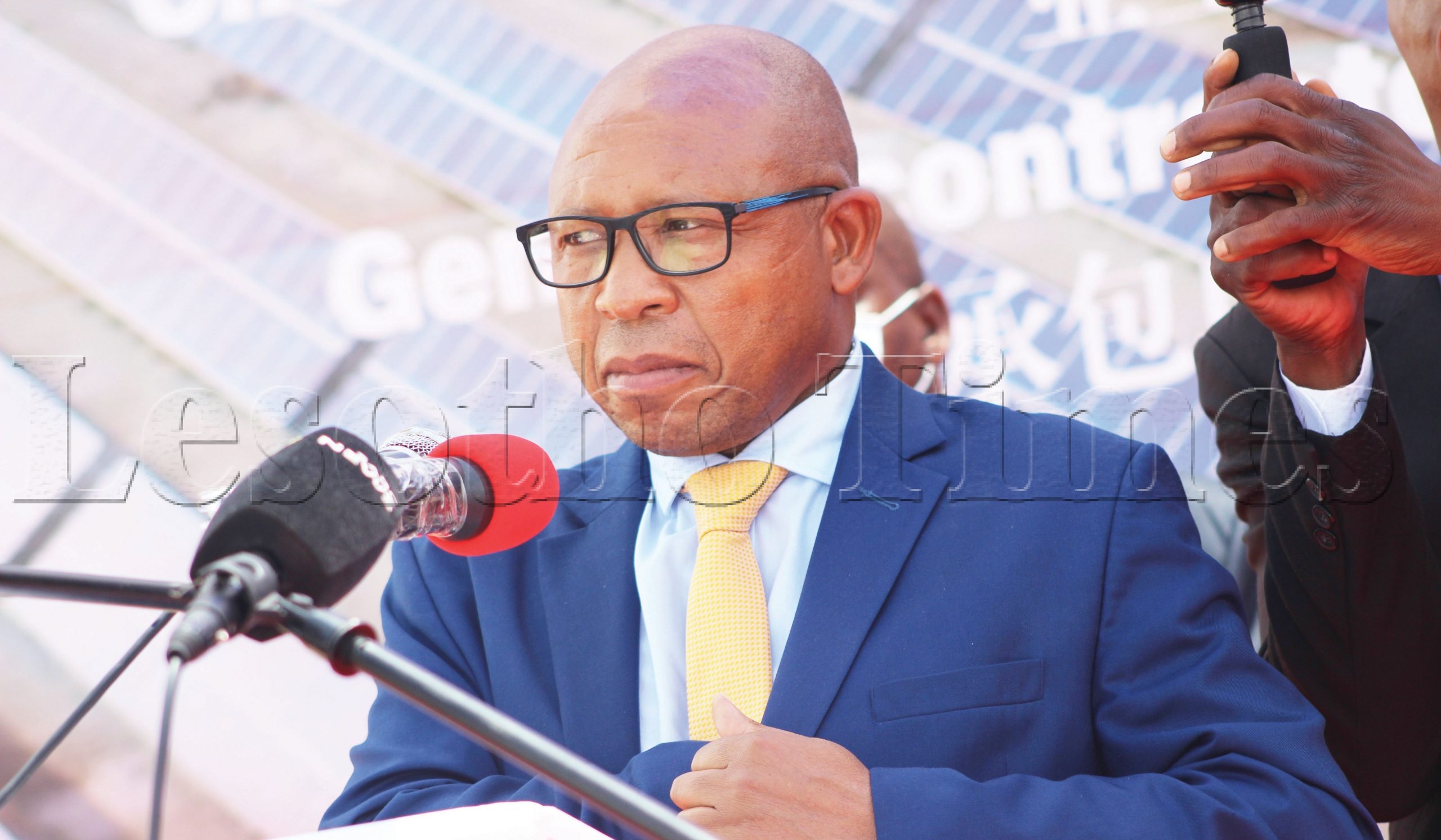Bereng Mpaki
PRIME Minister Moeketsi Majoro has reiterated the government’s stance that all employers in the public and private sector should ensure that their employees are vaccinated before they can access their places of work.
But employers have blasted the government for failing to consult them before coming up with the new protocols.
The measures were first announced by Health Minister Semano Sekatle a fortnight ago in a televised address to the nation. At the time, Mr Sekatle said the new requirement would come into effect on 1 January 2022.
“Because of the surge in Covid-19 infections, the government has resolved that from 1 January 2022, all public servants, NGO and (private) company employees should not be allowed entry into their work premises without being vaccinated,” Mr Sekatle said.
“To show that the positivity rate is increasing at an alarming rate, it has shot up from 0, 85 percent to 13 percent in just one week. Hospital admissions have increased from three percent to seven percent of those infected.”
And on Monday, Dr Majoro reiterated that employers must ensure that all their workers have been vaccinated before accessing their places of work.
Dr Majoro also said unvaccinated persons would not obtain health services.
He said the rate of Covid-19 infections increased by 10 percent since the end of November 2021 to date with infections shooting from 48 to 2654 during that period. Lesotho has so far recorded a total of 29 999 cases and 673 deaths according to the latest data from the National Covid-19 Secretariat (NACOSEC).
Dr Majoro said Lesotho had as of Monday vaccinated 830 128 people, which is 52 percent of the 1, 6 million people eligible for vaccination.
“Cabinet has approved the decision for all employers to ensure that all their workers are vaccinated,” Dr Majoro said.
“These include government employees, state enterprises workers, private sector workers and civil society workers. All people seeking medical attention from health centres will be required to produce proof of Covid-19 vaccination to obtain services. This is being done due to the high Covid-19 infections among health workers.”
But the Association of Lesotho Employers and Businesses (ALEB) immediately blasted the government saying the decision would likely hurt the already ailing economy.
ALEB chief executive officer (CEO), Advocate Lindiwe Sephomolo, told the Lesotho Times the government’s decision would burden employers with public health issues which were not their responsibility.
“We do not support the government’s decision to delegate its public health duties to employers. That is not the employers’ responsibility and we find it wrong and unfair on us.
“We do not have a problem with the government’s plan for universal vaccination but to turn employers into inspectors and then penalising anyone for not abiding by the directive to ensure all workers are vaccinated is unacceptable.”
She said ALEB was notified by NACOSEC this week that employers who contravened the government’s directive would be fined anything between M5000 to M10 000 or alternatively face one-month imprisonment.
Adv Sephomolo said many factory employers could fail to resume operations this January after the December 2021 holidays because most of their employees were unvaccinated.
“Some firms have as much as 70 percent of unvaccinated workers. What the government should do is to go into the factories and start vaccinating workers to enable production to continue. The government should have put up proper systems in place to ensure easier vaccination before deciding to penalise employers whose workers are not vaccinated.
“When we met NACOSEC on Monday, we thought it was for consultation purposes but we were surprised to be informed about the government’s decision to impose compulsory vaccination,” Adv Sephomolo said.
If employers were consulted beforehand, they would have provided valuable input for the benefit of both parties, she said.
NACOSEC acting chief executive officer, Thabo Ntoi, yesterday acknowledged his organisation’s failure to consult with employers before coming up with the new protocols. He however said they had apologised and notified the employers of their obligations.
While ensuring the vaccination of the public is the duty of the government and not the employers, the employers have a duty to ensure that their workers are in a safe and healthy work environment, he said.
“The constitution stipulates that it is the duty of an employer to ensure that his or her workers have a safe and healthy working environment. So, while we have acknowledged the lack of consultation and apologised, we notified the employers of their duty with regards to the new protocols.
“It is their duty to ensure that all their workers are in a safe environment including one safe from the killer Covid-19 and in avoidance of closure of businesses prevent risking severe sicknesses and deaths caused by Covid-19,” Mr Ntoi said.
Lesotho introduced Covid-19 passports under which sporting events, social activities and some services were only supposed to be accessed by people who had been fully vaccinated. Dr Majoro announced the measures last October but several stakeholders in the sports and entertainment sectors did not enforce them.

